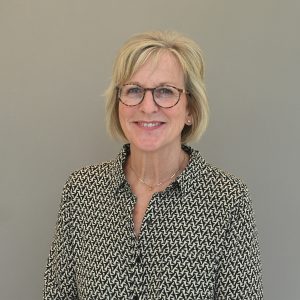When Lori Popejoy and Amy Vogelsmeier were working as registered nurses early in their careers, they saw firsthand how quickly respiratory infections, such as the common flu, could spread in nursing homes.
Oct. 26, 2021
October 26, 2021
Story contact: Brian Consiglio, 573-882-9144, consigliob@missouri.edu
Original Story source from Show Me Mizzou can be found here
COLUMBIA, Mo. – When Lori Popejoy and Amy Vogelsmeier were working as registered nurses early in their careers, they saw firsthand how quickly respiratory infections, such as the common flu, could spread in nursing homes.
“Outbreaks of respiratory infections are notoriously hard to control in places like nursing homes because you typically have enclosed spaces where many elderly people are close together,” said Popejoy, an associate professor in the MU Sinclair School of Nursing. “While a global pandemic of this magnitude with COVID-19 has been rare, infectious outbreaks in nursing homes do occur from time to time. So, it is important to help guide these facilities in managing infectious diseases so they are better prepared for the next outbreak.”
To help assess how more than 500 Missouri nursing homes have responded to the COVID-19 pandemic, Popejoy and Vogelsmeier, now research faculty at the University of Missouri, recently earned a 4-year, $1.9 million grant from the Agency for Healthcare Research and Quality. By identifying strategies nursing homes used to overcome challenges related to the pandemic, the research team hopes to develop recommendations nursing homes across the country can use to improve quality of care and, ultimately, patient health outcomes.
“We will be taking a comprehensive view by comparing facilities in both urban and rural areas, as well as facilities with both high COVID-19 infection rates and facilities with low infection rates, which allows us to potentially identify patterns for what went well or what can be improved,” said Vogelsmeier, an associate professor in the MU Sinclair School of Nursing. “By talking to various stakeholders, including residents and their families, nursing home staff and administrators, public health experts and the Department of Health and Senior Services, we can find helpful strategies to assist nursing homes to better prepare and respond to infectious outbreaks.”
Since the pandemic began, nursing shortages that already existed have gotten worse due to burnout and exhaustion. A recent MU study found 31% of all Missouri nurses are older than age 54, and some rural Missouri counties have more than half of their nursing workforce aged 54 or older.
“The workforce was already at a breaking point, and now the pandemic has pushed many of these older nurses into retirement,” Popejoy said. “These kind of studies can help inform public policy and hopefully implement best practices that nursing homes dealing with similar challenges can implement nationwide.”
Vogelsmeier added how powerful empathy can be when talking with nursing home administrators and staff, given she and Popejoy know firsthand the obstacles nursing homes are trying to overcome.
“When we were in practice, we could influence things at a very local level, but now as researchers, we have the chance to influence things at the state and national level,” Vogelsmeier said. “It is very rewarding to make a difference that positively impacts nursing home care and quality, which ultimately improves patient health outcomes.”
Funding for the study was provided by the Agency for Healthcare Research and Quality.

